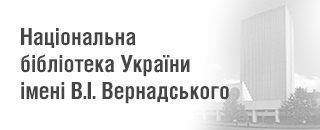THEORETICAL ASPECTS OF UKRAINE’S INTEGRATION INTO THE EUROPEAN EDUCATIONAL SPACE
DOI:
https://doi.org/10.31470/2786-6246-2023-5-84-93Keywords:
public administration, state humanitarian policy, educational space, European educational space, Bologna process, integration of Ukraine into the educational spaceAbstract
The article highlights the following challenges and problems in Ukraine in the field of education. First, the labor market, which is dynamically developing, requires stable connections between its participants and institutions of the education system. The relationship is significant only when the development of one object affects the current state of another object. Meanwhile, in the conditions of the conservative academic system, which determines the principles of functioning of the vast majority of educational institutions, it is not necessary to talk about their joint dynamic development with economic entities. Secondly, the innovative development of the economy dictates the need to strengthen the scientific research potential of the educational system and the use of innovative methods of educational activity by educational institutions. This requires close integration of education and science. Thirdly, the diversification of educational programs and the increase in the share of non-state educational institutions, as well as the trend towards mass education of the highest level, which has finally taken shape, require ensuring the effective management of educational institutions and the quality of education. Fourthly, the problem of lack of budgetary funding for classic, fundamental educational programs and the need for affordable quality education for all interested categories of the population require an effective financial policy. Fifth, the rigid structure of the educational system does not always meet the demands of society and the economy. The educational system, the core of which is a number of consistently implemented basic educational programs of various levels for children and youth, and the rest is detached from the general core, which is not always ready to ensure the acquisition of new necessary skills here and now. The process of acquiring knowledge is perceived as a process that requires considerable effort and time. As a result, retraining of adults (necessary for many in the conditions of rapid development of socio-economic processes and digitalization of society) does not have the necessary popularity.
The research substantiates that the main goal of the integration of the national higher school into the pan-European system of higher education is the training of a qualified employee of the appropriate level and profile, competitive on the labor market, competent, responsible, fluent in his profession and oriented in related fields of activity, capable of effective work by specialty at the level of world standards, ready for constant professional growth, social and professional mobility; satisfaction of the needs of the individual to receive the appropriate education. It should be recognized that the main thing in education reform is the change in the content of education, its new content and transfer from mass-reproductive to active-activity, which allows creating the necessary conditions for identifying and forming the creative individuality of the future specialist. Not only the diploma should be converted, but the content of education, correlating it with existing world standards. At the same time, it must be done carefully, not allowing mindless destruction of the fundamentality, globality of the current national education system, denying or ignoring the accumulated positive experience, but on the contrary, taking it into account and using it as much as possible.
References
Dyman, T.M. &. Bonkovskyi, O.A. & Vovkohon, A.H. (2017). Ievropeiskyi prostir vyshchoi osvity ta Bolonskyi protses: Navchalno-metodychnyi posibnyk [The European space of higher education and the Bologna process: Educational and methodological guide]. Odesa: NU «OMA» [in Ukrainian].
Avetysian, P.S. & Halykian, H.Ye. & Zaslavska, M.I. (2016). Pro deiaki problemy reformuvannia sfery vyshchoi osvity u krainakh postradianskoho prostoru u svitli yevraziiskoi intehratsii [About some problems of reforming the sphere of higher education in the countries of the post-Soviet space in the light of Eurasian integration]. Naukova dumka – Scientific thought, 4(22), 5–15 [in Ukrainian].
Carlsen, A. (2006). Cooperation between the ASEAN countries and the EU in education. LLinE. Helsinki, 2, 126–129 [in English].
Tsili staloho rozvytku OON [Sustainable development goals of the UN]. www.undp.org. Retrieved from https://www.undp.org/uk/ukraine/tsili-staloho-rozvytku/quality-education [in Ukrainian].
Khudaverdiieva, V.A. (2022). Intehratsiia v yevropeiskyi osvitnii prostir: zdobutky, problemy, perspektyvy [Integration into the European educational space: achievements, problems, prospects]. Naukovyi chasopys NPU imeni M.P. Drahomanova. Seriia 5. Pedahohichni nauky: realii ta perspektyvy –Scientific journal of the M.P. Drahomanov NPU. Series 5. Pedagogical sciences: realities and prospects, 2. Retrieved from https://enpuir.npu.edu.ua/bitstream/handle/123456789/39185/Khudaverdiyeva.pdf?sequence=1&isAllowed=y [in Ukrainian].
Kruchek, O.A. (2021). Intehratsiia natsionalnoi osvity u yevropeiskyi osvitnii prostir: problemy ta perspektyvy rozvytku [Integration of national education into the European educational space: problems and development prospects]. Sciences of Europe, 70-3. Retrieved from https://cyberleninka.ru/article/n/integratsiya-natsionalnoyi-osviti-u-evropeyskiy-osvitniy-prostir-problemi-ta-perspektivi-rozvitku [in Ukrainian].
Vashchuka, F.H. (2011). Intehratsiia v yevropeiskyi osvitnii prostir: zdobutky, problemy, perspektyvy [Integration into the European educational space: achievements, problems, prospects]. Uzhhorod: ZakDU [in Ukrainian].
Kyrychenko, K.I. (2015). Problemy intehratsii natsionalnoi systemy osvity do yevropeiskoho osvitnoho prostoru [Problems of integration of the national education system into the European educational space]. Aspekty publichnoho upravlinnia : rehionalne ta munitsypalne upravlinnia – Aspects of public administration: regional and municipal administration, 11–12 (25–26), 104–108 [in Ukrainian].







